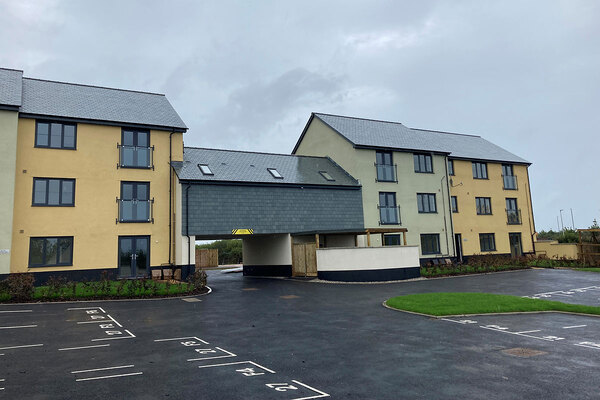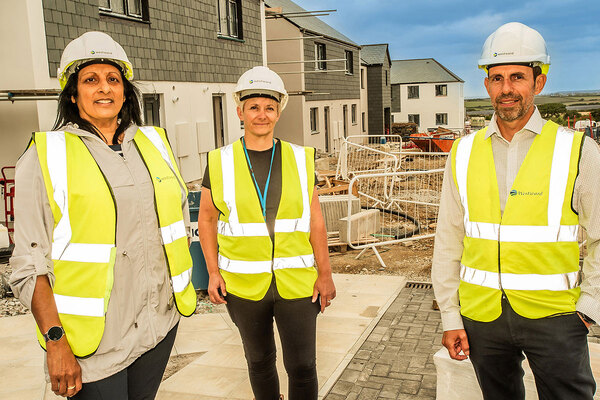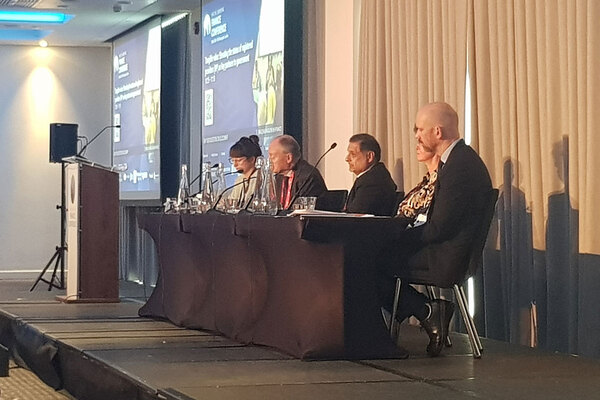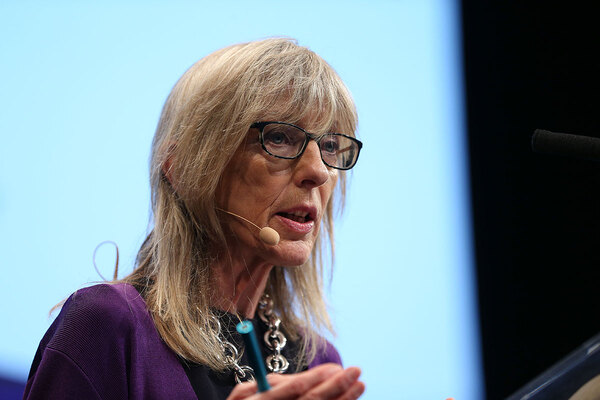You are viewing 1 of your 1 free articles
Q&A with Eamonn Boylan
Eamonn Boylan may have been the chief executive of Stockport Metropolitan Borough Council since January 2010, but his heart is still 100% housing.

Source: Guzelian
Prior to his current role, Mr Boylan spent the bulk of his career in a variety of prestigious housing roles: director of housing then deputy chief executive at Manchester Council and then deputy chief executive at the newly formed Homes and Communities Agency in London.
Mr Boylan may spend much of his days now grappling with the government austerity drive and managing cuts of around £100 million by 2017 from an initial Stockport Council budget of £260 million when he took over, but housing clearly still makes him tick. He is at the core of the 10 councils that make up the Greater Manchester Combined Authority as its lead on housing and planning. He is also due to speak on councils and house building at this June’s Chartered Institute of Housing conference and exhibition in Manchester. We caught up for an hour to get a flavour of what he plans to say.
Q: What are your plans for housing in Stockport?
A:House building in Stockport is a key element of our overall growth strategy. We know we’ve got a lot of catching up to do in order to get ourselves into a position where we have the right housing supply, so we’re prioritising housing, we’re working hard with a number of developer partners to bring forward affordable and a mixed range of homes right the way across the Borough. We’ve granted consents for 1,000 units in the last few months alone.
Q: You’re talking about councils and house building in your CIH session – will Stockport be directly building any homes or using its housing revenue account to fund development?
A:Well, I would not rule anything out. I’d absolutely be willing for the Borough to take direct development risk in order to get the right thing done in the right place at the right time. We have no plans of this nature at present though. I’m supportive of the argument that says councils ought to be freed up to utilise the reserves that are being built up in HRAs to deliver more affordable homes – but that could only ever be part of a solution alongside prudential borrowing, for instance.

Eamonn will be speaking at CIH Housing on Wednesday 24 June 2015 in the ‘The role of local authorities in house building’ session at 14:00 in Charter 3.
Q: With your GMCA hat on, what are the plans there since the announcement in November of housing powers and £300 million in funding being passed to the area under a ‘Devo Manc’ plan?
A:We’re working to develop a spatial framework for Greater Manchester for the next 20 years – this is looking in particular at housing, planning and employment land. The evidence base we have suggests that across the GMCA we need to be delivering around 11,000 homes a year. At the moment, we’re delivering about 4,000. That’s the scale of the challenge we’re facing. Never did a plan lay a brick, though. We need to get the investment framework right, which is very much where the Devo Manc deal comes in. With the £300 million, our target is to try and recycle the fund as much as possible in the course of 10 years, so we’re aiming to turn it into an investment of more than the £300 million. We will then lever-in private sector investment in equal proportions, so we’re hoping that through that fund alone, we can generate substantial investment over the 10-year period. Our aim is to have the fund established at the beginning of April, and the first schemes to be on site within 12 months. We’ll use the fund to unlock those schemes that would not come forward otherwise as they are unviable.
Q: Moving onto partnership working in other areas, do you think you’re hearing what you want to hear from housing providers about engaging with health and social care?
A:Registered housing providers absolutely have a role to play in closer integrated health and social care in helping us deliver economic growth. But we are not yet consistently getting the most out of that potential. Their enthusiasm to get involved is beyond reproach, but we need to understand and coordinate current activity better, so that we’re getting the best value out of it.
Q: What key things would you like people to take away from your CIH session at Manchester?
A:We can talk about planning, we can talk about funding, we can talk about public sector land, we can talk about all those things – one thing that a local authority needs to do is to have a very clear vision about what it’s trying to deliver. It needs to understand that its primary role is to catalyse others.








